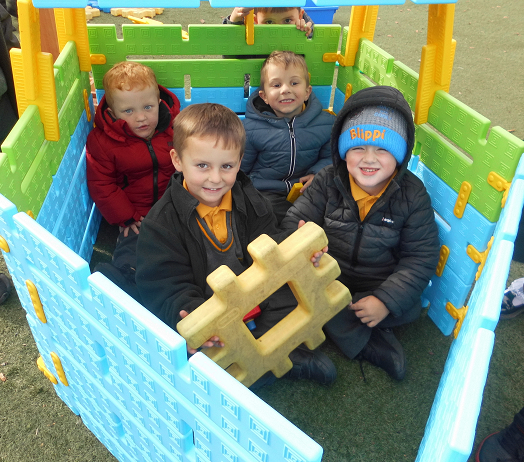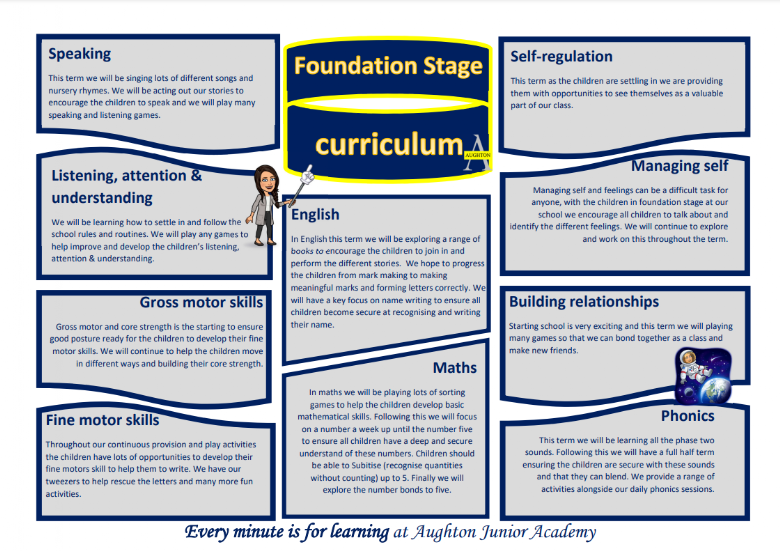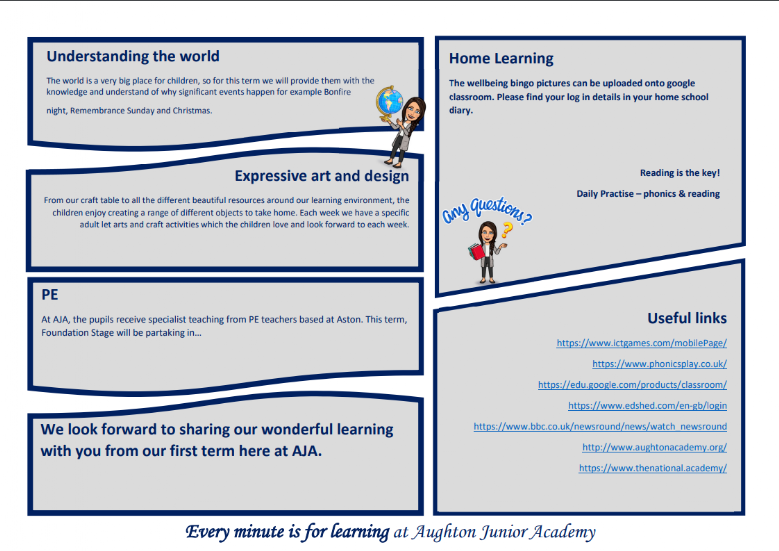Foundation Stage
Mrs Mack, Mrs Parkin and Mrs Ward

Welcome to Foundation Stage Two at AJA. We have designed the structure of the EYFS curriculum to provide children with opportunities to lead their own learning and follow their individual curiosities balanced with structured teacher-led activities. We recognise that children’s development at this age is not linear but more like a web with many aspects to it. It is with this understanding of child development in mind that we have a shared ethos our early year’s provision. This helps the children as they move from Foundation to year one to experience a smooth transition. The foundation curriculum is based on the EYFS profile. Our vision for all children throughout their first year at AJA is aspirational and, as we move through the year, the children will be prepared for their transition into the next year group.
During their year in foundation stage two, children work towards the Early Learning Goals: children are expected to meet most of these by the end of the year across the seven areas of learning and development. These seven areas are split into Prime and Specific areas of learning.
THE PRIME AREAS OF LEARNING ARE:
- Personal, Social and Emotional Development (Making relationships, Sense of self, Understanding Feelings)
- Communication and Language (Listening and Attention, Understanding, Speaking)
- Physical Development (Moving and Handling, Health and Self-care)
- As children develop, the skills gained within the Prime areas form the foundations on which children are taught the knowledge, skills and understanding within the four specific areas.
THE SPECIFIC AREAS OF LEARNING AND DEVELOPMENT ARE:
- Literacy (Reading, Writing)
- Mathematics
- Understanding the World (People and Communities)
- Expressive Arts and Design (Creating with Materials, Being Imaginative and Expressive)
These seven areas are used to plan a broad and balanced curriculum based on the interests, enquiries and specific needs of the children.
Children learn in a variety of ways. We always provide access to continuous provision which the children can access independently. Within the provision, children learn through playing, exploring, talking, questioning, reflecting and interacting with adults and each other. Adults work with children within the provision to model quality talk and move learning on based on the needs of the individual.
Phonics and reading are taught through the ACET Phonics programme which is delivered in small focus groups based on the child individual needs.
Both maths and writing are taught as whole class input followed by small teacher or teacher assistant focus groups. Adults work closely with these small groups on carefully tailored activities within the provision to move their learning on, based on children's specific next steps.
Throughout our continuous provision, both indoor and outdoor, purposeful opportunities are provided to encourage talk, reading, writing and mathematics. This encourages children to apply their knowledge and skills in different ways and develop their independence.
Rainbow Fish Reading Area
Our reading area is based on the book 'The Rainbow Fish' by Marcus Pfister.

